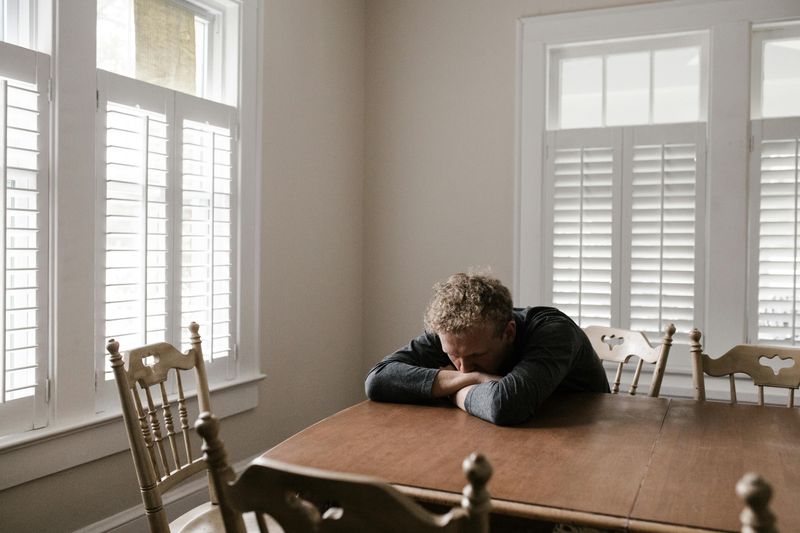10 Subtle Ways Ghosting Hurts More Than People Realize

Getting ghosted feels like being left hanging in midair. One minute you’re connecting with someone, the next they’ve vanished without a trace. While most people recognize ghosting is hurtful, few understand the deeper psychological wounds it creates. These invisible scars can affect how we see ourselves and approach relationships long after the ghosting occurs.
1. It leads to rumination

Your mind becomes a detective, searching for clues in past conversations. Without closure, your thoughts spiral into an endless loop of ‘what ifs’ and ‘maybes.’ Did you say something wrong? Were they playing you all along?
This mental hamster wheel keeps spinning long after the ghosting occurred. Your brain craves resolution and will create countless scenarios trying to explain the unexplainable silence.
The uncertainty becomes exhausting as you replay interactions looking for answers that never come. This cognitive loop drains your mental energy and makes moving forward nearly impossible until you manually force yourself to stop seeking answers.
2. It triggers old wounds of abandonment

Ghosting doesn’t just hurt in the moment—it can trigger deep-seated fears from your past. Remember when your best friend moved away without saying goodbye in third grade? Or when your parent was emotionally unavailable?
These old feelings of abandonment suddenly feel fresh again. Your emotional brain doesn’t distinguish between past and present rejection; it simply registers the familiar pain and responds accordingly.
The current ghosting situation might seem relatively minor, but it’s actually hitting you harder because it’s connecting to a lifetime of similar experiences. This layering of pain explains why some ghosting experiences feel devastatingly disproportionate to the actual relationship length.
3. It erodes self-esteem and self-worth

Ghosting creates a dangerous vacuum where self-criticism flourishes. In the absence of explanation, you become your own worst critic. Maybe you weren’t attractive enough, interesting enough, or worthy of basic respect?
The silence becomes a mirror reflecting your deepest insecurities. Even confident people find themselves questioning their value after being ghosted. Your brain interprets the rejection as evidence supporting your most negative self-beliefs.
This erosion happens subtly, often without you realizing it’s the ghosting—not your worth—that’s the problem. The impact can linger, affecting how confidently you present yourself in future interactions and relationships.
4. It destabilizes trust in future relationships

After being ghosted, you begin anticipating the next disappearance. That expectation of abandonment becomes a constant companion, pushing you to create emotional distance as a form of self-protection.
New connections become minefields of potential hurt. You might check read receipts obsessively or feel panic when someone doesn’t respond quickly. These trust issues aren’t dramatic overreactions—they’re your brain’s way of trying to protect you from experiencing that same painful surprise again.
The most troubling part? These protective barriers form automatically, often without conscious awareness, making them particularly difficult to dismantle even when you meet trustworthy people.
5. It creates a sense of powerlessness

Ghosting strips away your voice in the story’s ending. Unlike a mutual breakup or even an argument, you’re denied any participation in the relationship’s conclusion. This one-sided decision leaves you feeling powerless.
Humans naturally crave a sense of agency in our lives. When someone ghosts you, they’ve made a unilateral decision about your relationship without allowing you any input. This fundamental lack of control triggers deep discomfort beyond the rejection itself.
Even if you ultimately would have accepted the end of the relationship, being denied the chance to respond, understand, or have closure creates a uniquely unsettling powerlessness that can shake your sense of autonomy.
6. It heightens anxiety and social vigilance

After ghosting, ordinary communication becomes a minefield of potential signals. You find yourself analyzing message timing, punctuation choices, and emoji selection with detective-like precision. Did that period mean they’re angry? Why did they take three hours to respond?
This heightened state of alert keeps your nervous system constantly activated. Your phone becomes both a source of hope and anxiety—each notification triggering a physiological response.
The mental bandwidth this consumes is staggering. Important tasks, creative thinking, and present-moment enjoyment all suffer as your attention remains split, with part of your brain constantly scanning for signs of another potential disappearing act.
7. It makes you feel disposable or “less than”

Ghosting sends an unintended message: you weren’t even worth a goodbye. The person decided that sending a simple text explaining their feelings was too much effort—as if you were a subscription they could simply cancel without notice.
This casual disregard cuts deeper than direct rejection. At least with explicit rejection, your humanity is acknowledged. Ghosting can make you feel like an object rather than a person with feelings.
The resulting sense of disposability can affect how you value yourself in other contexts too. You might start accepting less consideration from friends, colleagues, or partners because ghosting has normalized the idea that your feelings don’t require acknowledgment.
8. It disrupts your identity and narrative

Ghosting doesn’t just end a relationship—it can shatter your perception of reality. The connection you thought was real suddenly feels questionable, leaving you wondering if it was all in your head as the story you believed collapses without explanation.
This disruption forces you to question your ability to read situations and people accurately. Were you completely wrong about the relationship? If so, what else might you be misinterpreting in your life?
The uncertainty extends beyond this single relationship, creating a ripple effect that can temporarily destabilize your sense of self. Your identity partly forms through your relationships and how others respond to you—when someone suddenly acts as if you don’t exist, it creates a confusing disconnect in your personal narrative.
9. It takes an emotional and physical toll

Your body doesn’t distinguish between physical and social pain. Brain scans show rejection activates the same neural pathways as physical injury, which explains why being ghosted can literally hurt.
Sleep becomes elusive as your mind races with unanswered questions. Your appetite might disappear or you might find yourself seeking comfort in food. Stress hormones flood your system, potentially triggering headaches, stomach problems, or weakening your immune system.
These physical symptoms aren’t imaginary or dramatic—they’re your body’s natural response to social rejection. The lack of acknowledgment makes ghosting particularly difficult because others might not recognize or validate the very real physical toll it’s taking on you.
10. It slows the healing process

Healing from ghosting takes longer than from clear breakups. Without closure, part of you stays suspended in uncertainty, making it harder to fully move on. You might check their social media months later, still seeking clues.
Hope becomes a stubborn companion. Maybe they’ll explain someday? Maybe there was a misunderstanding? This lingering hope prevents complete emotional processing and extends your healing timeline.
The ambiguity also complicates the grieving process. With defined endings, you can progress through stages of grief toward acceptance. Ghosting keeps you cycling between denial, anger, and bargaining without a clear path to resolution, stretching what might have been weeks of healing into months.

Comments
Loading…